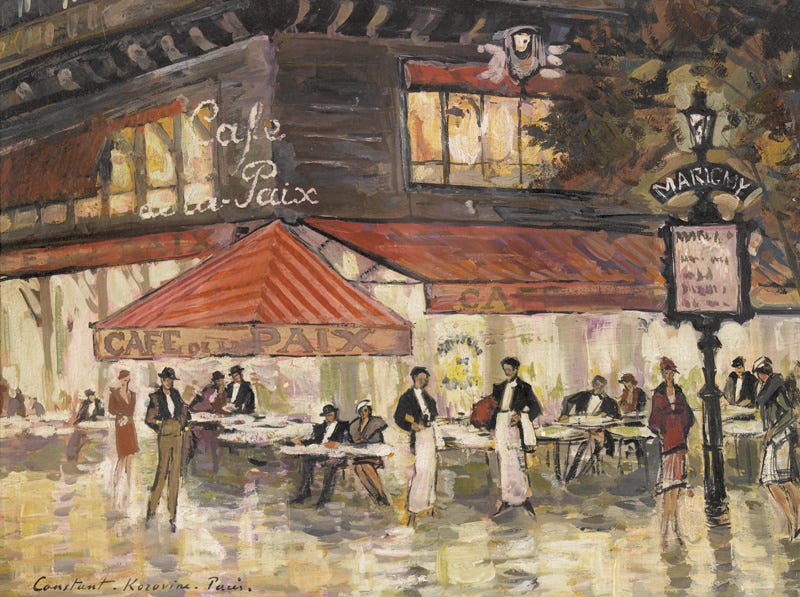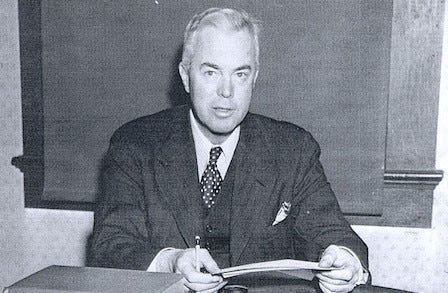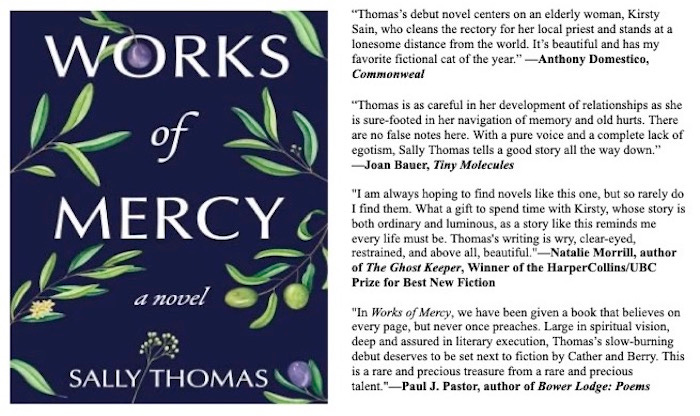
Over the past two years, my fellow Poems Ancient and Modern founder Sally Thomas and I have been in conversation about what I dubbed “Spots of Time poetry.” What started us off was Edward Thomas’s “Adlestrop,” as we tried to identify what made the poem so memorable, but our intermittent discussions soon spread to consider many other works — including Today’s Poem, Robert Hillyer’s “Early in the Morning.”
This is an idea in process, an ongoing critical attempt to define the way in which certain poems present a memory — but not just any memory. The recollection is not offered in the poem for its symbolic value or as some melancholy or ironic illustration of the gap between past and present. The memory is not even offered primarily as a memory. It is instead a flash of recognition of a previous moment in which, for an instant, perception was lifted to a mystical sense of time present all at once: a wholeness of things. And the poet, remembering that moment, has the feeling again — while the poem, if it’s good enough, generates something of that mystical sense in the reader.
Last month, Sally Thomas anchored this Spots of Time discussion for Poems Ancient and Modern’s readers with a look at the lines from The Prelude in which William Wordsworth coined the phrase:
There are in our existence spots of time, That with distinct pre-eminence retain A renovating virtue, whence — depressed By false opinion and contentious thought, Or aught of heavier or more deadly weight, In trivial occupations, and the round Of ordinary intercourse, our minds Are nourished and invisibly repaired . . .
“Wordsworth’s chief epiphany,” she wrote, is “the mind’s own capacity, by calling up remembered beauties in all their complicated aspect, to remake, restore, and renovate itself.”
To understand the medicinal value of these Spots of Time, we might point to memories with the opposite effect. John Henry Newman once mentioned what he called the stained imagination, injured by some witnessed vulgarity — say, a teenager’s first encounter with violent pornography. Whatever the damage of such a memory, a Spot of Time is the reverse: a sight of reality that endures in recollection as a redemptive presence, repairing the mind.

Of the work of the American poet Robert Hillyer (1895–1961), only Today’s Poem, “Early in the Morning,” remains in much public notice — and that primarily because the composer Ned Rorem set it to music in one of the few commonly performed examples of American art song.
But Hillyer was an interesting figure. Helping form “the Harvard poets,” an undergraduate group that included his classmates John Dos Passos and E.E. Cummings, Hillyer went to Europe shortly after graduating in 1917 to serve in an international ambulance corps before America entered the First World War. He taught at Harvard for many years afterward, won the Pulitzer Prize, and wrote eight books of poetry. Modern without being entirely modernist, he argued for “conservative poetry,” dubbing himself “a conservative and religious poet in a radical and blasphemous age.”
In its eighteen irregular trimeter lines, “Early in the Morning” uses a single long-a rhyme, repeated every second line, to create an almost hypnotic flow (day, café, au lait, Premier — and notice how Hillyer keeps us located in Paris through the rhymes that take their long-a sound from borrowed French pronunciations). The odd-numbered lines end softer with an unstressed and unrhymed syllable (morning, awning, croissants). There’s one ironic nod from the older narrator — “I was twenty and a lover” — which moves away from the Spots of Time effect, but mostly Hillyer sets a memory that cleanses the imagination and connects time in the perfection of a moment.
Early in the Morning
by Robert Hillyer
Early in the morning Of a lovely summer day, As they lowered the bright awning At the outdoor café, I was breakfasting on croissants And café au lait Under greenery like scenery, Rue François Premier. They were hosing the hot pavement With a dash of flashing spray And a smell of summer showers When the dust is drenched away, Under greenery like scenery, Rue François Premier. I was twenty and a lover And in Paradise to stay, Very early in the morning Of a lovely summer day.







This is so vivid that it has me in tears. I just had a similar moment at the Café du Monde in New Orleans -- no greenery like scenery but café au lait and beignets!
Moments of grace?